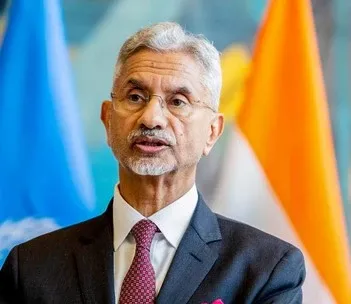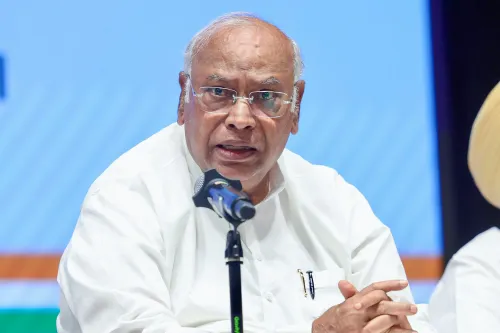What Did EAM S Jaishankar Say About the Afghanistan Earthquake?

Synopsis
Key Takeaways
- Over 600 lives lost in Kunar Province earthquake.
- India offers assistance and support.
- Rescue teams face challenges due to remote terrain.
- Afghanistan's vulnerability to natural disasters is highlighted.
- Historical context of earthquakes shows a pattern of devastation.
New Delhi, Sep 1 (NationPress) External Affairs Minister (EAM) S. Jaishankar on Monday conveyed his profound concern regarding the catastrophic earthquake that struck Afghanistan’s Kunar Province, resulting in the tragic loss of over 600 lives thus far.
In a statement on the social media platform X, S. Jaishankar remarked, "The catastrophic earthquake in Kunar Province, Afghanistan, is a matter of profound concern. We express our support and solidarity with the Afghan people as they tackle this crisis."
He further stated, "India is prepared to provide assistance during this critical time. Our heartfelt condolences go to the families affected, and we pray for the swift recovery of the injured."
Reports from the state-run Radio and Television of Afghanistan (RTA) indicate that the death toll from the earthquake in eastern Afghanistan has surged to 622, with more than 1,000 individuals injured.
Rescue teams are working in remote areas with limited communication to evaluate the full scope of the damage and deliver aid, with officials cautioning that the reported figures are preliminary as recovery efforts continue, as noted by official media.
A 6.0-magnitude earthquake struck the eastern region of Afghanistan at 11:47 p.m. local time on August 31, with its epicenter located 27 km deep, according to the US Geological Survey and reported by Xinhua news agency through RTA.
Afghanistan is particularly susceptible to earthquakes due to its location on several fault lines where the Indian and Eurasian tectonic plates converge. The mountainous landscape of eastern Afghanistan is also prone to landslides, complicating rescue operations.
Last year, a series of earthquakes in the west resulted in over 1,000 fatalities, highlighting the fragility of one of the world’s poorest nations in the face of natural disasters.
Previously, a magnitude 6.3 quake hit Afghanistan on October 7, 2023, accompanied by strong aftershocks. The Taliban government estimated that at least 4,000 people died, marking it as the most devastating natural disaster in recent history.
Over the past decade, more than 7,000 individuals have lost their lives to earthquakes in Afghanistan, according to the UN's Office for the Coordination of Humanitarian Affairs, which reports an average of 560 deaths annually due to such calamities.
A significant earthquake in May 1998, affecting Takhar and Badakhshan provinces in northern Afghanistan, resulted in approximately 4,000 deaths. Nearly 100 villages and 16,000 homes were either destroyed or damaged, displacing around 45,000 individuals.









